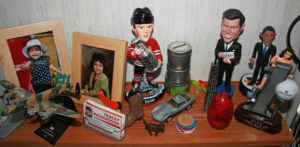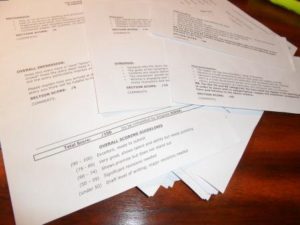Gord Downie, lead singer of Canada’s The Tragically Hip, has been referred to as a poet. Yes, he’s published a book of poetry, but I wanted to read the lyrics to his songs to confirm this kind of writing. I admit that although I loved the sound of the band in my high school years, the words he sang were not entirely clear (I did not pay attention to lyrics back then) so I never really knew what he was singing about.

Fast forward to his last concert a few weeks ago. Gord dazzled me. And now I had the internet to look up all his lyrics! I did not recognize his words as “poetry” as I understood poetry to be. Here’s more that I discovered.
Poetry is a language that isolates feelings. Poetry came first, before prose, as in children’s verses and music. It is decorative, more expressive than prose. Poetry uses rhyme and rhythm, and when read aloud a poem carries an emotional sound and feel. Poetry is primarily used to provoke thought. Lines in poetry can be very long or as short as one word in keeping with an intended rhythm or to emphasize an idea. Lines may be arranged in stanzas.
Come in, come in, come in, come in
From thin and wicked prairie winds come in
It’s warm and it’s safe here and almost heartening
Here in a time and place not lost on our imagination
(from The Tragically Hip’s “The Darkest One”, 2002)
Prose is a straightforward delivery of an accumulation of ideas arranged in sentences and paragraphs. The first word of every sentence is capitalized. Prose is what we read in everyday writing. Large blocks of words communicate thought and information. Novels, essays, short stories are all prose. Some prose can read lyrically which leads to a third form, the Prose Poem.
Prose Poem is writing that appears like prose but reads like poetry. Writers who are part of literary circles have been innovative in developing their own styles. Prose poem can be a few lines or a few pages and utilizes techniques typically associated to the form of poetry. Techniques such as fragmentation of lines, repetition, and rhyme are vehicles that enable greater expression in writing.
An example of this is from Campbell McGrath’s “The Prose Poem”:
On the map it is precise and rectilinear as a chessboard, though driving past you would hardly notice it, this boundary line or ragged margin, a shallow swale that cups a simple trickle of water, less rill than rivulet, more gully than dell, a tangled ditch grown up throughout with a fearsome assortment of wildflowers and bracken. There is no fence, though here and there a weathered post asserts a former claim, strands of fallen wire taken by the dust. To the left a cornfield carries into the distance, dips and rises to the blue sky, a rolling plain of green and healthy plants aligned in close order, row upon row upon row.
I’m wondering what form Gord Downie’s work resembles more closely. Poetry? Or Prose Poem? Maybe a bit of both? His thought-provoking lyrics tell true stories, offer unwavering opinion and truths, and tug at the emotions. I am reluctant to pin his style down to one thing or another.
If there’s a goal that everyone remembers
It was back in old ’72
We all squeezed the stick and we all pulled the trigger
And all I remember is sitting beside you
You said you didn’t give a f*ck about hockey
And I never saw someone say that before
You held my hand and we walked home the long way
You were loosening my grip on Bobby Orr
(from Tragically Hip’s “Fireworks”, 1998)
Late breaking story on the CBC
A Nation whispers, “We always knew that he’d go free”
They add, “You can’t be fond of living in the past
‘Cause if you are then there’s no way that you’re going to last
(from Tragically Hip’s “Wheat Kings”, 1992)
Whatever style it is, it’s Gord’s. He is a poet. And a story teller, and a lyricist, and a musician. An artist. And so much more. Thank you, Gord Downie, for being Ahead by a Century.
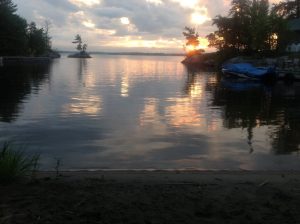
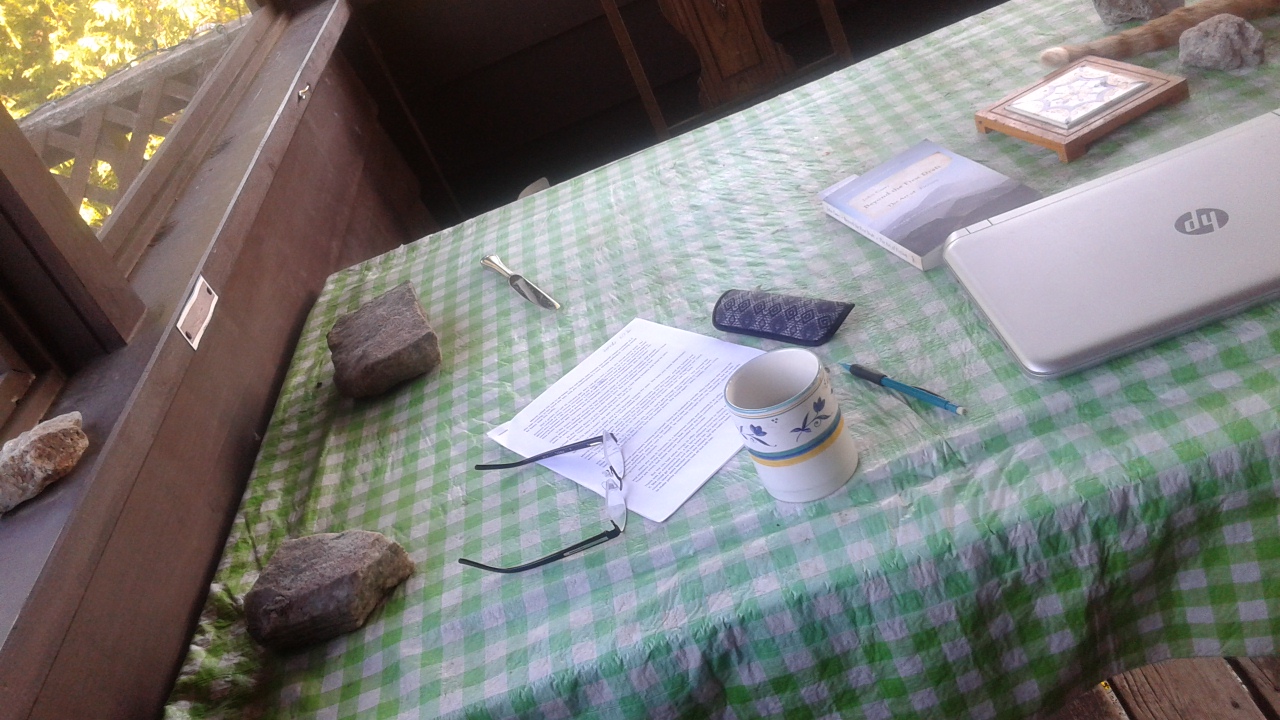
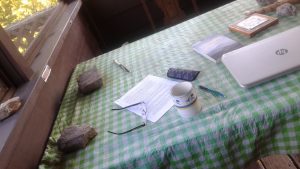 The world is a sensual place and our job as writers is to grab those senses and give our readers enough of a taste to spark their own imaginations. How do we do that? First, by being good observers. All artists must observe the world around them in order to translate it into their art. But there is also a deep inner world, a resource full of memories, not to mention the internet; to help us imagine our world without leaving the house.
The world is a sensual place and our job as writers is to grab those senses and give our readers enough of a taste to spark their own imaginations. How do we do that? First, by being good observers. All artists must observe the world around them in order to translate it into their art. But there is also a deep inner world, a resource full of memories, not to mention the internet; to help us imagine our world without leaving the house.
